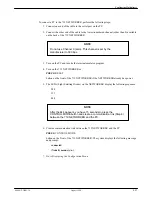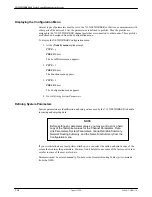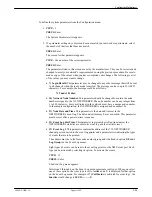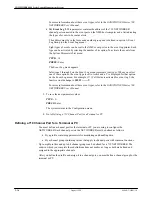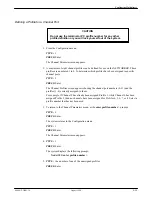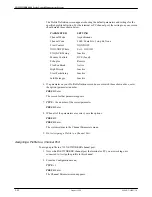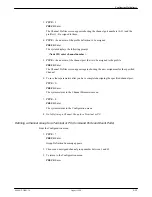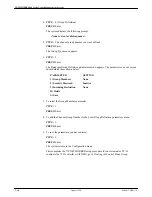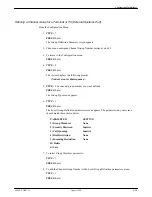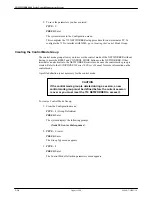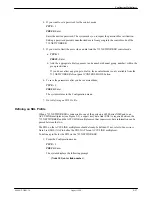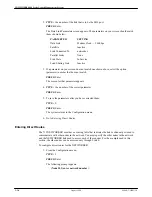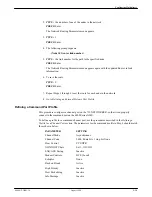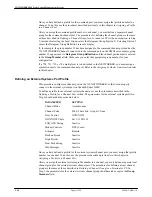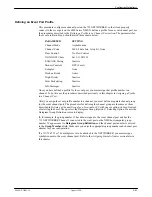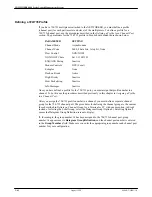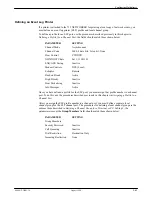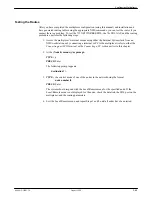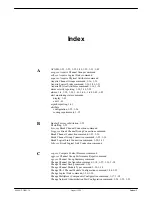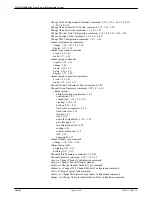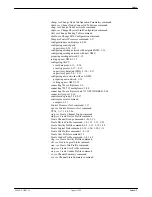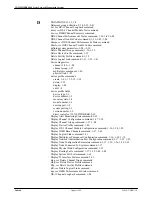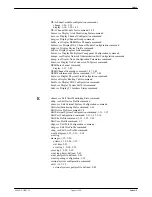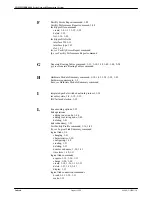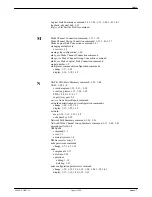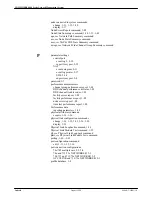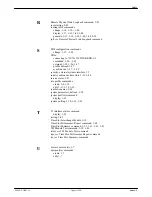
Configuring Multiplexers
2-41
6800-A2-GB21-10
August 1994
Defining an Event Port Profile
This procedure configures a channel port on the 719 NETWORKER, so that it can properly
connect to the event port on the 6800 Series NMS.To define a profile for an event channel port, use
the procedures described in the Defining a Profile for a Channel Port section. The parameters for
the event profile in Step 6 should match those shown below:
PARAMETER
SETTING
Channel Mode
Asynchronous
Channel Code
9600, 8 data bits, 1 stop bit, None
Flow Control
No Flow Control
XON/XOFF Chars
Set 1: 11H/13H
ENQ/ACK Pacing
Inactive
Modem Controls
DCE (Local)
Echoplex
None
Flush on Break
Active
High Priority
Inactive
Slow Packetizing
Inactive
Info Messages
Inactive
Once you have defined a profile for the event port, you must assign that profile number to a
channel. To do this, use the procedures described previously in this chapter in Assigning a Profile
to a Channel Port.
After you assign the event profile number to a channel, you must define a separate channel group
for the event channel port. The procedures for defining the channel group are the same as those
described in Defining a Channel Group for a Terminal or PC with one exception: in Step 3 instead
of selecting the Local Group, select the Datagram Group (Option 5). Selecting Option 5 causes the
Datagram Group Definition screen to display.
If, for example, the group number 12 has been assigned to the event channel port and has the
719 NETWORKER Channel 3 connected to the event port on the NMS host computer, group
number 12 appears next to Datagram Group Definition, and the channel port number is entered
in the Group Members field. Make sure you enter the appropriate group number and channel port
number for your configuration.
If a 731/724/735 or 74x multiplexer is to be attached to the NETWORKER, you must assign a
symbolic name to the event channel port. Refer to the Assigning Symbolic Names section later in
this chapter.

